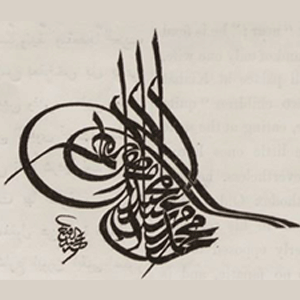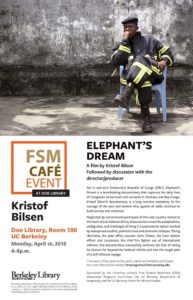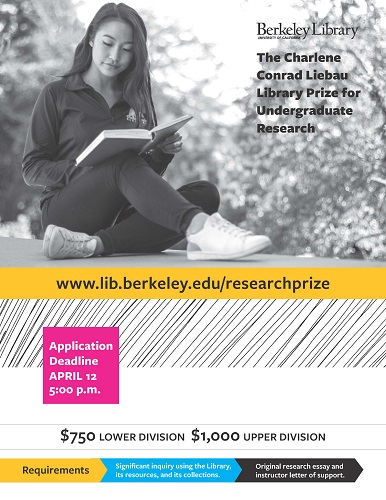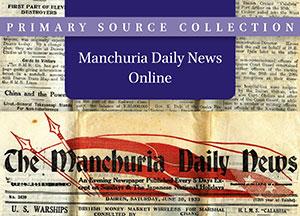Author: dorner
Trial access: Pittsburgh Courier
 Until June 30, 2018, the Library has access to the newspaper Pittsburgh Courier in its various iterations: The Pittsburgh Courier (1911-1950), Courier (1950-1954), Pittsburgh Courier (1955-1966), and the New Pittsburgh Courier (1996-2002).
Until June 30, 2018, the Library has access to the newspaper Pittsburgh Courier in its various iterations: The Pittsburgh Courier (1911-1950), Courier (1950-1954), Pittsburgh Courier (1955-1966), and the New Pittsburgh Courier (1996-2002).
This important African-American press title was founded in 1910 by Robert Lee Vann. At first the paper focused on local interests, but later addressed the social concerns that arose due to the influx of African Americans to Pittsburgh during the Great Migration. Vann used the paper as a platform to encourage prominent African Americans to serve their community; to promote education; and to counter the “negative coverage in the mainstream press by emphasizing African American achievement.”
Source:
Muhammad, Baiyina W. “Black Press: Newspapers in Major Cities.” In Encyclopedia of African American Business, edited by Jessie Carney Smith, Millicent Lownes-Jackson, and Linda T. Wynn, 1:79–88. Westport, Conn.: Greenwood Press, 2006.
Primary Sources: State Papers Online – Foreign

The Library has acquired the Foreign State Papers of early British Monarchs.
State Papers Online Part II: The Tudors, 1509-1603: State Papers Foreign, Scotland, Borders, Ireland and Registers of the Privy Council
“Documents Tudor England’s relations with its neighbours, both near and distant including those it sought to control (Scotland, Ireland and Wales), those it fought wars or maintained peace with in Europe (the Holy Roman Empire, Spain, France) and those it traded with (the Ottoman Empire, the Barbary coast and Russia.)”
State Papers Online Part IV: The Stuarts and the Commonwealth, James I – Anne I, 1603-1714: State Papers Foreign, Ireland and Registers of the Privy Council
“Part IV completes the Papers of the Stuart period and contains volumes of State Papers from, to and about all the countries of Europe. Many of these countries have lost their own collections from this period increasing the rarity and value of these British State Papers. All the great international themes of the 17th century play out in document after document making them an essential resource for not only British but European History: marriage alliances, revolutions, wars and treaties, trade and commerce and, crucially, religion.”
These can be found along with the State Papers Domestic for these time periods, at State Papers Online.
Primary Sources: Early Arabic Printed Books from the British Library
 The Library has recently acquired Early Arabic Printed Books from the British Library (1475-1900), a full-text searchable digital library of early printed books in Arabic script. It includes works on law, the sciences, religion, history, geography, travel, mathematics, and many other subjects. There are some European translations of Arabic works included, as well as Arabic translations of European works.
The Library has recently acquired Early Arabic Printed Books from the British Library (1475-1900), a full-text searchable digital library of early printed books in Arabic script. It includes works on law, the sciences, religion, history, geography, travel, mathematics, and many other subjects. There are some European translations of Arabic works included, as well as Arabic translations of European works.
The resource is divided into three subject modules, though all can be searched simultaneously.
Module 1: Religion and Law
The Qu’ran, traditions (Hadith), tafsir, theology, commentaries on religious texts, religious teaching and practice, biographies of religious figures; law, fiqh and statutes, fatwas and rulings
Module 2: Sciences, History, and Geography
Natural history, medicine, physiology, other science, classical sciences, philosophy, logic, politics, ethics, mathematics, arithmetic, geometry, mechanics, astrology, chemistry; history, early caliphs and conquests, modern history, genealogy, biographies; geography and travel, regional geography, and topography
Module 3: Periodicals, Literature, Grammar, Language, Catalogues and General Works
Periodicals, folktales, pre-Islamic literature (Antar, Bani Hilal, Imru’l qays), Islamic poetry and prose (al-Burdah), poetry and prose (maqamat), Kalilah wa-dimnah, Luqman, proverbs and sayings, Thousand and one nights, later literature, poetry and prose, general literature; language and lexicography, dictionaries, grammar, syntax, rhetoric, ‘ilm al-bayan, catalogues, manuscript catalogues, etc.
Searches can be done in Arabic (using a built-in keyboard tool), transliterated Arabic, or Latin script.
Event: Bancroft Library Roundtable: “From Kitchen Tables to Laboratories: Nutritional Science at UC Berkeley, 1895-1930”
The third Bancroft Library Roundtable will take place in the Lewis-Latimer Room of The Faculty Club at noon on Thursday, April 19. Kimberly Killion, doctoral candidate in history at UC Berkeley and Bancroft Library Study Award recipient, will present “From Kitchen Tables to Laboratories: Nutritional Science at UC Berkeley, 1895-1930.”
__________________________________________________________
During the late nineteenth century, scientists from various fields began conducting experiments that would change the way most Americans defined, chose, and related to food. Forming the nascent field of nutritional science, this network of scientists included UC Berkeley’s first professor of nutrition, Myer Jaffa, who began conducting research on human nutrition in the 1890s. This research largely took place at the tables of his subjects, where he observed their dietary choices and health. By 1930, when Professor Agnes Fay Morgan led nutritional research at Berkeley, the science had shifted dramatically from field research to laboratory research. Drawing from the Jaffa and Morgan collections housed in The Bancroft Library, Killion will discuss the development of nutritional science on campus during a transformative period in American food history.
We hope to see you there.
José Adrián Barragán-Álvarez and Kathi Neal
Bancroft Library Staff
Primary Sources: Presidential Recordings Digital Edition

The Library has acquired Presidential Recordings Digital Edition, an online portal for annotated transcripts of telephone conversations of Presidents Johnson, Kennedy, and Nixon. Recordings and transcripts are presented together. The transcripts are searchable and browseable by administration, series, speaker, date, place, and duration.
Event: Showing of Elephant’s Dream followed by a discussion with the Director/Producer
 Elephant’s Dream
Elephant’s Dream
A film by Kristof Bilsen
Doe Library, Room 180
UC Berkeley
Monday, April 16, 2018
6-8pm
Followed by discussion with the Director / Producer
Set in war-torn Democratic Republic of Congo (DRC), Elephant’s Dream is a breath-taking documentary that captures the daily lives of Congolese street-level civil servants in Kinshasa and Bas-Congo. Kristof Bilsen’s documentary is a long overdue testimony to the courage of the men and women who, against all odds, continue to build society and resilience.
This event is free, open to the public, and all are invited to participate. Sponsored by the University Library’s Free Speech Movement (FSM) Educational Programs Committee, the UC Berkeley Department of Geography, and the UC Berkeley Center for African Studies.
Workshop: Want to learn how to make 2D into 3D?
 Photogrammetry Workshop
Photogrammetry Workshop
Friday, April 6
3-4pm
Moffitt Library
Makerspace on 1st Floor
Learn about this technique in a one hour workshop presented by Scott McAvoy from UC San Diego. Scott will walk you through the process, show you the software, and will give a demonstration of how photogrammetry works. He will be available for questions on your photogrammetry or 3D project after the workshop.
Sign up at http://ucblib.link/photogrammetry
This event is free and open to the Cal community. UCB ID required to enter Moffitt Library.
The Library attempts to offer programs in accessible, barrier-free settings. If you think you may require disability-related accommodations, please contact: jean.ferguson@berkeley.edu, 510-768-7618.
Deadline for Library Prize for Undergraduate Research coming up soon!
 We are accepting submissions for the Charlene Conrad Liebau Library Prize for Undergraduate Research now through April 12, 2018! Undergraduate students of all levels and disciplines may apply. We especially welcome submissions from lower division students, whose projects are judged separately from those of the upper division. More details are available on the website. http://www.lib.berkeley.edu/researchprize
We are accepting submissions for the Charlene Conrad Liebau Library Prize for Undergraduate Research now through April 12, 2018! Undergraduate students of all levels and disciplines may apply. We especially welcome submissions from lower division students, whose projects are judged separately from those of the upper division. More details are available on the website. http://www.lib.berkeley.edu/researchprize
Works in progress are eligible. Submissions are open to research projects from a UCB course in one of the following terms:
Lower division prize: Spring 2017, Summer 2017, Fall 2017, Spring 2018
Upper division prize: Summer 2017, Fall 2017, Spring 2018
Primary Sources: Manchurian Daily News Online
 The Library has recently acquired the digital archive of the Manchurian Daily News and associated publications Manchuria Magazine, Manchuria Month, Contemporary Manchuria, and the Manchurian Information Bulletin. As described on the Brill website, this resource “offers scholars of Japan’s modern history an unparalleled inside view of Japan’s agenda in Manchuria and its plans for domination in Asia. Founded in 1908 in the wake of Japan’s victory in the war against Russia, the Manchuria Daily News set up in Dalian (Darien) at the headquarters of the South Manchuria Railway Company (Minami Manshū Tetsudō Kabushiki-gaisha) (SMR).
The Library has recently acquired the digital archive of the Manchurian Daily News and associated publications Manchuria Magazine, Manchuria Month, Contemporary Manchuria, and the Manchurian Information Bulletin. As described on the Brill website, this resource “offers scholars of Japan’s modern history an unparalleled inside view of Japan’s agenda in Manchuria and its plans for domination in Asia. Founded in 1908 in the wake of Japan’s victory in the war against Russia, the Manchuria Daily News set up in Dalian (Darien) at the headquarters of the South Manchuria Railway Company (Minami Manshū Tetsudō Kabushiki-gaisha) (SMR).
“Lavishly funded from Tokyo, and with the full resources of the SMR Research Department behind them, the Manchuria Daily News and the associated titles offered here constitute a formidable record of Japanese policy on Manchuria and the Manchoukuo project. From 1908-1940 this compact, feisty daily and its associated titles responded to the exigencies of the day, taking requests from a variety of official and often competing propaganda bureaux. In the Manchuria Daily News and in these associated publications, the SMR presented a powerful case for the Japanese leadership of Asia, after 1932 using Manchoukuo as a showcase for Japan’s technological, cultural and political advancement.”
Primary Sources: Ogonek Digital Archive (DA-OGN) 1923-2017
 The Library has acquired the Ogonek Digital Archive 1923-2017.
The Library has acquired the Ogonek Digital Archive 1923-2017.
Ogonek is one of the oldest weekly magazines in Russia, having been in continuous publication since 1923. Throughout its illustrious history Ogonek has published original works by such Soviet cultural luminaries as Vladimir Mayakovsky, Isaac Babel, Ilya Ilf and Evgeny Petrov, Yevgeny Yevtushenko, the photographer Yuri Rost, and others. It first saw the rise of its stock under the editorial guidance of Mikhail Koltsov, a star Soviet reporter, who oversaw the growth of Ogonek from a readership of 25,000 in 1923 to nearly half a million within a mere two year period, turning it into one of the most influential and widely read Soviet publications of the period. Its popularity was left intact even after Koltsov’s arrest on the eve of the WWII in 1938. It is safe to say however, that the magazine would not become the cultural force it became, were it not for the editorial tenure of Anatoli Sofronov, the noted Soviet poet and playwright. Under Sofronov’s at times controversial and at times bromidic leadership Ogonek became an important outlet for some of the most well-known and respected Soviet writers, visual artists, photographers and reporters. Although under Sofronov Ogonek grew steadily, it came to experience the peak of its popularity at the hands of its new editor Vitaly Korotich, who assumed the editorship of the magazine after the passing of Sofronov in 1986 at the height of Perestroika. Korotich, inspired by the newfound political liberties turned the journal into a lively space for edgy political commentary, criticism, and satire. After undergoing financial and creative crisis in the wake of the collapse of the Soviet Union, which saw a steep decline in readership, Ogonek has now rediscovered its creative zest under a new leadership and management, once again becoming an important forum for cultural and political intellectual exchanges.